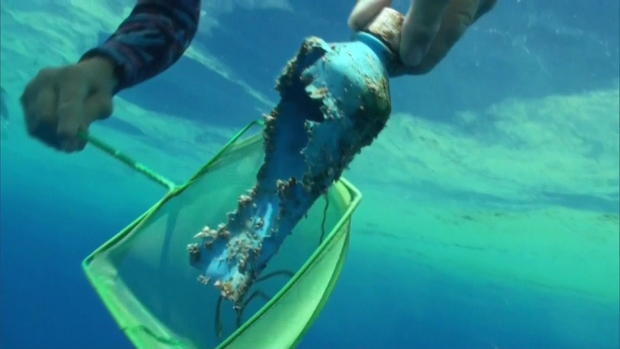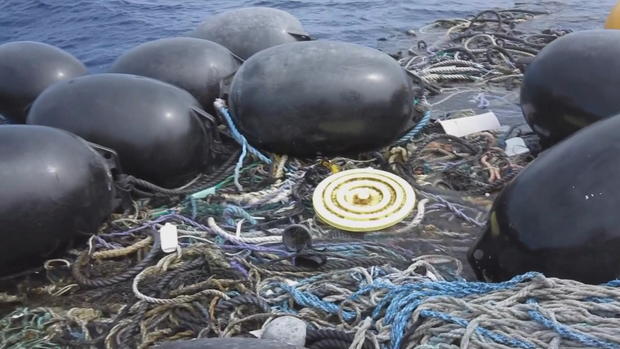U.S. polluting ocean with trash at alarming rate
SAN FRANCISCO -- Researchers collected details of how 192 coastal countries got rid of their trash -- and they calculated that eight million tons of plastic ends up in the ocean each year. Co-author of the study Jenna Jambeck showed us how much that is.
"Five bags, like this, are filled with plastic for every foot of coastline in the world," said Jambeck.
The plastic ends up not just floating on top of the ocean, it goes all the way down to the bottom.
"Some of it tends to sink and some of it tends to float and we are not even sure what happens to the fragments when they get below a certain size," said Jambeck.
They found that 20 countries are responsible for more than 80 percent of the plastic going into the ocean annually. China is the worst -- with about 2.4 million tons. The United States is number 20, responsible for about 750,000 pounds.
The patches of garbage floating in the Pacific are just a small amount of what's really there. Jambeck called it, "the tip of the iceberg."
Captain Charles Moore has been tracking what's known as the "Pacific Garbage Patch" aboard his research boat, The Alguita.
"She's got over a hundred thousand miles of deep sea research," said Moore.
His latest discovery is a collection of ropes, floats, and trash that has created an artificial island that one can walk on.
"In the middle of the Pacific we discovered - this summer - we were there for a month and it's beyond my wildest fears how bad it's gotten out there," said Moore.
The report finds that if current trends continue, the amount of plastic entering the oceans worldwide will double over the next ten years.


